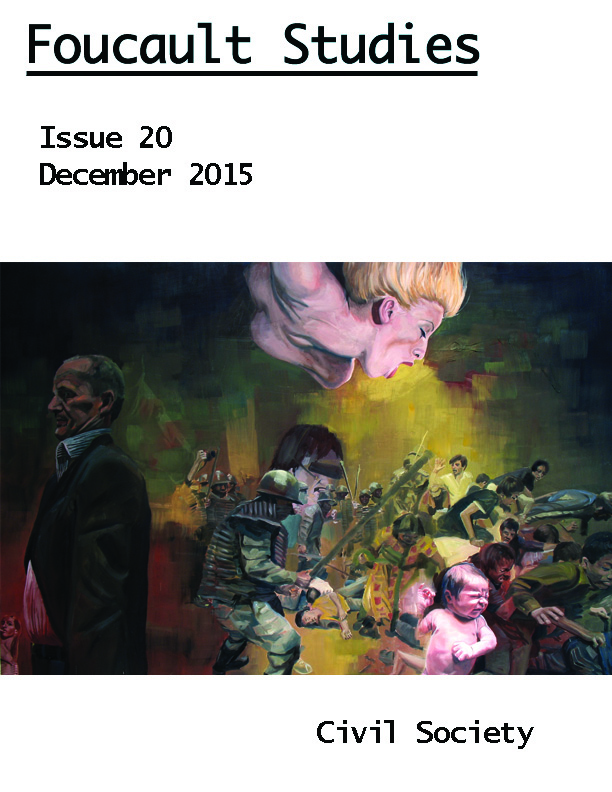The Christian Art of Being Governed
DOI:
https://doi.org/10.22439/fs.v0i0.4940Keywords:
alethurgy, force of truth, regime of truth, government, governmentality, anarcheologyAbstract
Like all previously published volumes of his lectures, the content of The Government of the Living defies brief summary. It shows us Foucault in 1980 mapping out a major new phase in his work in terms that complicate our existing understanding of his unfinished project. My review looks in turn at the two parts of the course: an unusually lengthy discussion of method and heuristics, followed by a tightly focused study of early Christian regimes of truth. I suggest that the complex opening theoretical reflections in these lectures go well beyond mapping the course of the immediately following historical analysis. They need to be seen in coordination with other conceptual innovations introduced over the following years, putting a task that Foucault calls here a “history of the power of truth” on his agenda alongside, and in integral connection with the previously defined tasks of a history of governmentality and a history of the subject. A newly published discussion in Berkeley later in 1980 adds crucial context to these Paris lectures, spelling out the linkage of structures of subjectivation to governability and of penitential ascetics to pastoral power. Taken together, the later books and lectures can now be seen to establish a framework of what I suggest we can call “alethic” or “aletheological” analysis, analysing and mapping across the span of Western history the modes of engagement of life and truth, with a view to enabling a renewed analysis of the political present.
Downloads
Published
How to Cite
Issue
Section
License
Authors retain copyright to their work, but assign the right of the first publication to Foucault Studies. The work is subject to a CC BY-NC-ND 4.0 license, but despite these restrictions, authors can take for granted that Foucault Studies will permit articles published in Foucault Studies to be translated or reprinted in another format such as a book providing a full reference is made to Foucault Studies as the original place of publication.



